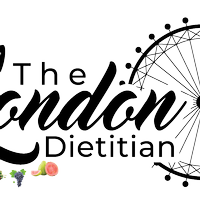So, you're decided to try to grow your family and wanting to optimise your chance. However, a quick google search reveals that navigating the vast expanse of online information has become increasingly overwhelming. What to eat? Does your diet truly impact your fertility? And what about those pregnancy supplements—do they hold any real significance, or are they simply riding the waves of marketing hype? In the following lines, let's delve into these questions to bring some much-needed clarity.
Let's start at the beginning: why is nutrition a vital consideration when trying to conceive? Put simply, whether you're planning to conceive or have no known fertility concerns, optimising your diet can wield a profound influence on your baby's future, thanks to the science of epigenetics. This term refers to how genes can be switched on or off by environmental factors—nutrition being a significant one. The genetic blueprint takes shape from a month before conception to a child's second birthday. This means that by fine-tuning your nutrition before conceiving, you are able to mold your future baby's health outcomes, subsequently having the potential to affect brain development, the immune system, overall health, and even the health of your potential grandchildren (for women, since all their eggs for a lifetime form during their time in the uterus!).
But what about supplements? As a general principle, I'm always inclined to endorse a wholesome, nutrient-rich diet to ensure you're receiving all necessary nutrients before, during, and after pregnancy. Nevertheless, I do recommend a high-quality prenatal supplement. This ensures the creation of an optimal environment for the growth of a healthy baby. Additionally, emerging research suggests that the benefits of such a supplement extend to enhancing ovulation, egg quality, egg maturation, fertilisation, and embryo implantation. If you're in active baby-planning mode, ideally, you'd start making dietary changes and incorporating a supplement into your routine three to six months prior to conceiving. So, to make your conception journey that bit easier, let's explore the pivotal nutrients that warrant attention in a prenatal supplement, along with understanding their significance.
#1 - B Vitamins
The realm of 'B' vitamins encompasses various members, some of which boast a robust evidence for their role in pregnancy and pre-conception. Take folic acid, for instance—an absolute staple. At the very least, all women should include a supplement providing a minimum of 400 micrograms of folic acid. Inadequate folate levels stand as a key contributor to unsuccessful pregnancies since it plays a vital role in cell division and DNA production—crucial functions in the initial stages of fetal development. Moreover, solid research supports the idea that folic acid supplementation before and for the first three months of pregnancy significantly diminishes the risk of neural tube defects.
Vitamin B6, another essential member of the B vitamin club, collaborates with a range of enzymes critical for metabolic functions that occur in the body. Emerging evidence hints at its potential in mitigating morning sickness during early pregnancy. Moreover, it's believed to have a role in enhancing fertility, augmenting the chances of conception, and lowering miscarriage risk. There's even a notion that B6 supplementation could positively impact the levels of cervical mucus, which is known to support sperm survival within the female reproductive system.
Niacin, also known as Vitamin B3, takes its place in this roster. It exerts influence over brain development and has even been associated with a lowered risk of miscarriage during early pregnancy. Certain studies even suggest its potential in curbing pregnancy-induced nausea.
#2 - Choline
Choline, a relatively recent addition to the nutritional spotlight, steps up as a crucial player. While its role in fertility wasn't widely known until recent times, emerging evidence underscores its significance in brain development. Inadequate intake during pregnancy could potentially hinder developmental milestones in the offspring's later life. Some studies even suggest it helps to reduce the risk neural tube defects.
#3 - Iodine
Iodine commands a central role throughout pregnancy. Research has shown that deficiency is connected to various negative consequences in children's later years, encompassing stunted growth, developmental delays, and diminished cognitive function. In fact, it stands as a primary contributor to preventable cognitive disabilities in children across the globe. Even mild deficiencies might translate to lower intelligence levels in children. Additionally, since iodine plays a pivotal role in thyroid hormone development, a deficiency during pregnancy could impact the mother's thyroid function, subsequently affecting the fetus' nervous system.
#4 - Iron
Pregnancy ushers in heightened iron requirements, driven by the body's need for extra blood production to adequately supply oxygen to the growing fetus. Research indicates a 50% increase in the blood volume of a woman during pregnancy. Consequently, insufficient iron intake can result in low birth weight, alongside potential developmental delays in motor and mental functions.
#5 - Vitamin D
With vitamin D receptors present in numerous cells across our bodies, including those in our reproductive systems, its influence on fertility has been a subject of exploration. Some studies even highlight heightened pregnancy rates with optimal Vitamin D levels. On the flip side, inadequate levels have been associated with high blood pressure during pregnancy (pre-eclampsia) and an increased risk of preterm labor.
#6 - Vitamin E
Vitamin E enters the scene with solid evidence supporting its role in thickening the endometrium lining, preparing it for embryo implantation. Achieving the right balance in endometrial thickness is pivotal for successful implantation and enhancing the likelihood of a healthy, full-term pregnancy. Research even suggests that vitamin E supplementation among those with unexplained infertility boosts implantation rates. The antioxidants and potential anticoagulant effects of vitamin E might play into this dynamic. The anticoagulant activity could facilitate increased blood supply to the follicles, thereby potentially raising estrogen production and supporting a healthy uterus lining..
#7 - Selenium
Selenium, a trace mineral, finds its place as an essential player within our bodies. Animal studies suggest its involvement in the development of the egg and in the prevention of early pregnancy loss. Some research even points to its potential in staving off pregnancy complications. A study focusing on pregnant women revealed that those with lower selenium levels experienced longer conception times and higher levels of subfertility. It's hypothesized that adequate selenium levels within the follicular fluid, which encases the egg, might influence fertility. Research indicates that women undergoing IVF for unexplained infertility had reduced selenium levels in their follicular fluid.
#8 - Zinc
While zinc's spotlight in the realm of fertility mostly centres around sperm health, it shouldn't be overlooked when it comes to women's health. Zinc's influence extends to regulating hormone, maintaining ovarian reserve, and also exerts antioxidant activity in the follicular fluid. Given that pregnancy entails a rapid surge in new cell development, zinc's role as a building block for these cells becomes paramount.
To wrap up, these are the key nutrients that should be on your radar when selecting a pregnancy supplement. However, it's vital to remember that when it comes to supplements, more isn't necessarily better. Always cross-check with your doctor to ensure compatibility with any underlying medical conditions. Additionally, if you're juggling multiple supplements, carefully scrutinize their ingredients and dosages to avoid doubling up. If you sense that a personalised consultation might aid in tailoring your supplement regimen to your unique needs, click here for a FREE discovery call. Your journey towards a healthy pregnancy begins with informed choices.

